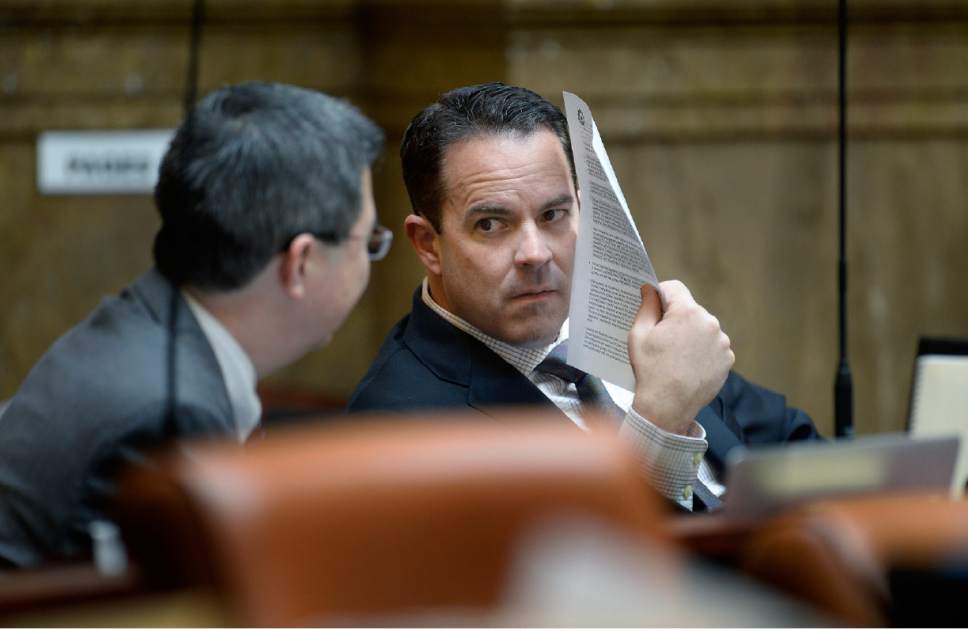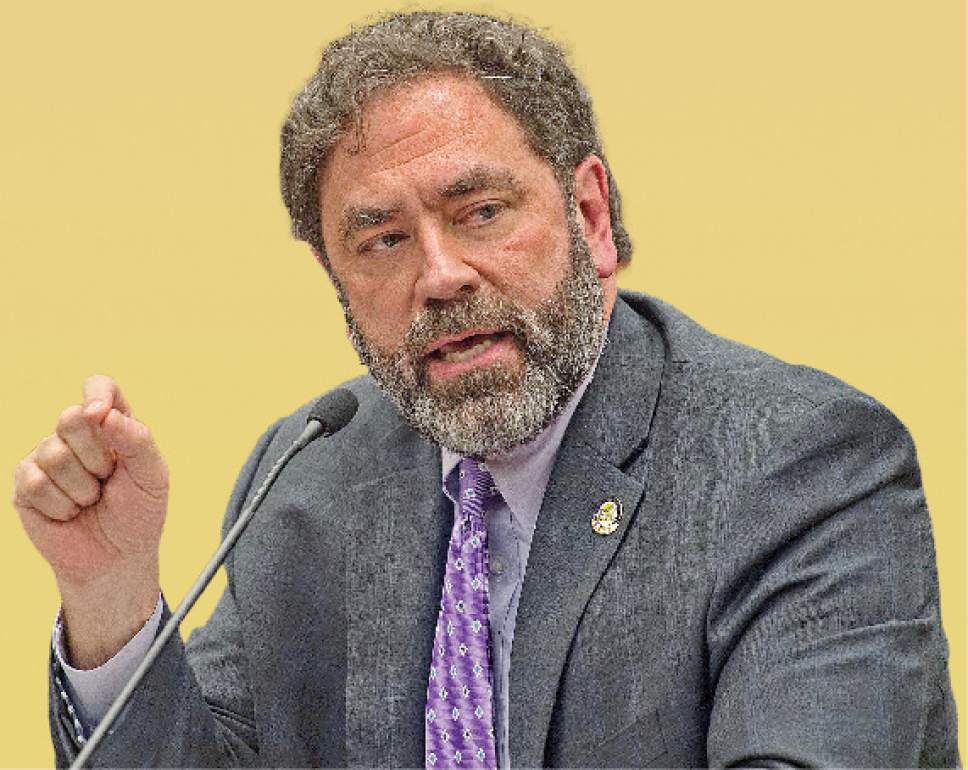This is an archived article that was published on sltrib.com in 2017, and information in the article may be outdated. It is provided only for personal research purposes and may not be reprinted.
With just six working days remaining in this year's Legislative session, Republicans are now looking at tax reforms that might provide a break for lower-income Utahns — but raise taxes on the wealthy.
"We looked at four or five options," including cuts for poorer Utahns, House Majority Leader Brad Wilson said Wednesday after a closed-door House GOP caucus to discuss them.
He said the caucus has not yet settled on any plan, nor even whether to try to pass something in the few days remaining. But it spent a long caucus on Wednesday trying to educate members on the impacts of varying options.
Part of these plans involves restoring the sales tax on food. In 2006 and 2007, Utah's state sales tax on food was cut from 4.75 percent to 1.75 percent, a feature of tax reform backed by then-Gov. Jon Huntsman.
If the food tax is increased, that could allow lowering overall sales tax rates on everything else while generating the same amount of money. Lawmakers say that could allow overall revenue neutrality — even if some pay more, and others less.
Wilson said adding tax on food could hurt the poor, but lawmakers are looking at a new approach to help mitigate that: not levying the full tax on foods that are basic staples.
"So if you choose to go buy Twinkies and soda pop, you're going to pay a higher sales tax on food. If you're buying eggs, vegetables and chicken, you're not going to pay a higher sales tax," Wilson said.
Models presented to lawmakers indicate a family making $50,000 to $80,000 a year still might see an increase of about $50 a year, he said. But they might see a reduction of $100 a year from other changes considered for income tax.
"So it would be a cut," overall for less-wealthy Utahns, Wilson said.
For income tax, lawmakers are looking at phasing out deductions and credits more quickly for higher-income brackets — and lower overall tax rates. Such phase-outs begin now at incomes of $150,000, but lawmakers are looking at dropping that to $100,000 or other levels.
"People at the higher income brackets would pay a little bit more," said Rep. Brad Last, R-Hurricane, vice chairman of the Executive Appropriations Committee. But he said lawmakers are using modeling so that people with up to $100,000 in income "would see almost no change," or, possibly, a cut.
Last said Republicans hope to have an extended evening meeting, perhaps Thursday, to see if they can get behind a plan.
Republicans control the Utah Legislature by super-majorities in both chambers.
Even with little time remaining, Wilson believes lawmakers still have time to enact reform if they choose to do so.
"What we looked at today is very simple. We're just doing two things. We're just changing sales tax rates a bit, up and down. And you're adjusting income tax rates," he said.
Senate President Wayne Niederhauser, R-Sandy, also said enacting reform is still possible.
"It looks like we could pass something here in the Senate," he said. "We've caucused about it. We're just waiting to hear if we've got the green light" from the House.
Meanwhile, House Minority Leader Brian King, D-Salt Lake City, complained that it's too late in the session to try to spring such proposals. He said Democrats have yet to be briefed about them, and many stakeholders are in the dark.
"You don't do something like this with six days left," he said.
Lawmakers have been eying reforms for a couple of reasons.
They say they want to reduce volatility in taxes from year to year by broadening the base of what is taxed.
Discussions also come as the Our Schools Now initiative is trying to put on the ballot a $750 million a year income tax hike for schools.
Legislative leaders and Gov. Gary Herbert have opposed that, arguing it would chase away new businesses and hurt the economy.
— Tribune reporter Benjamin Wood contributed to this story





